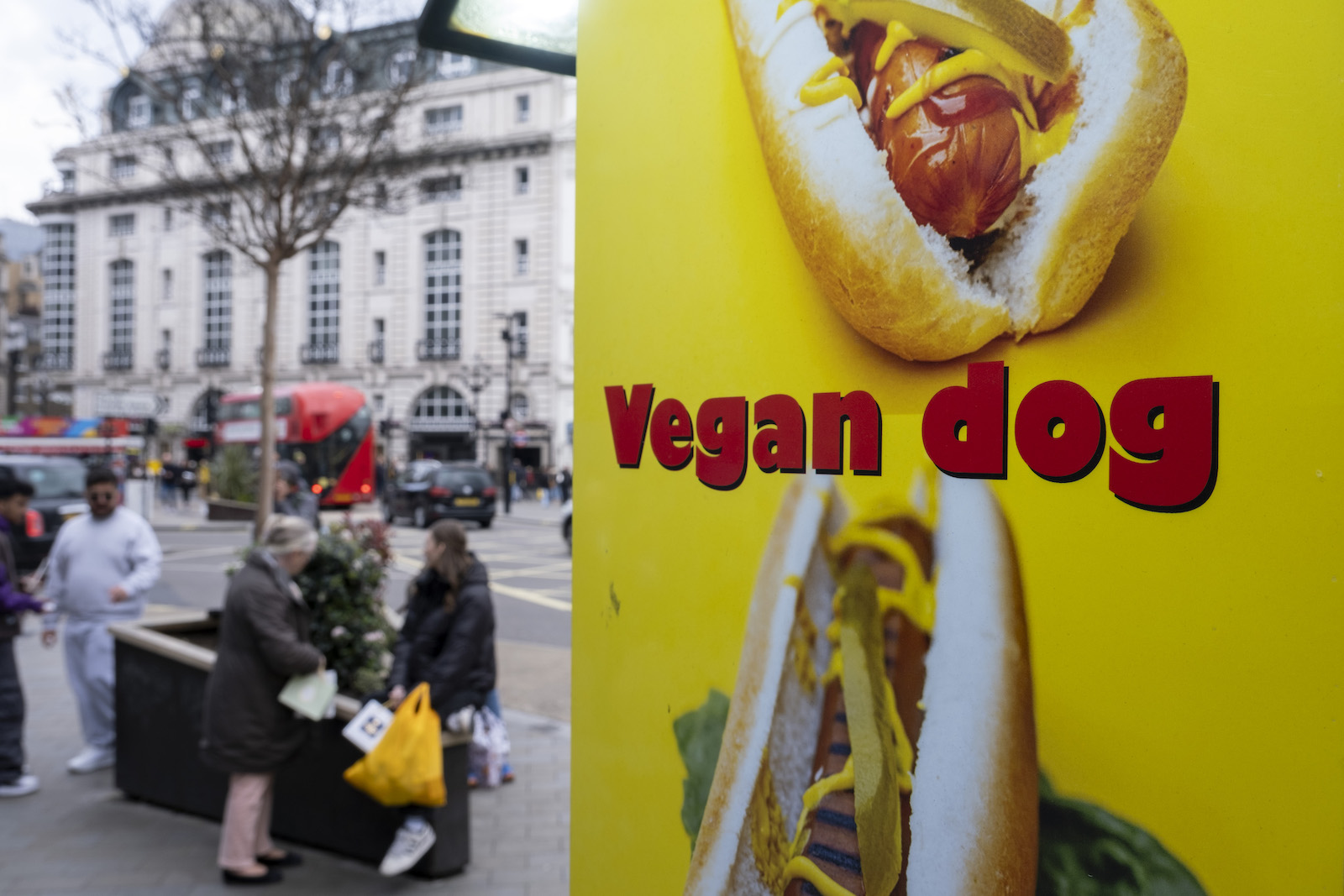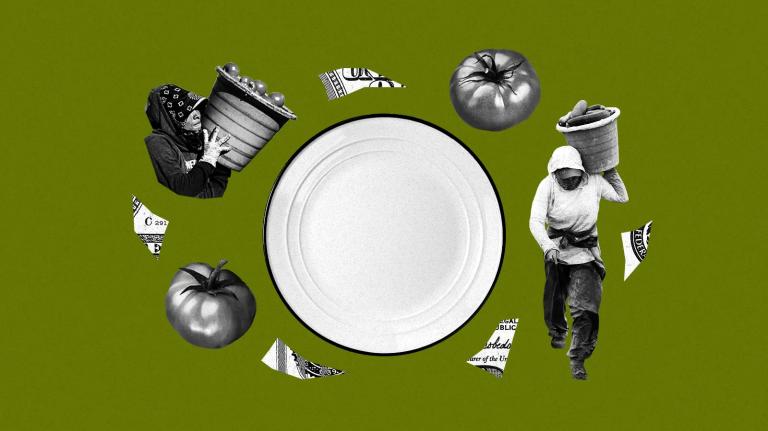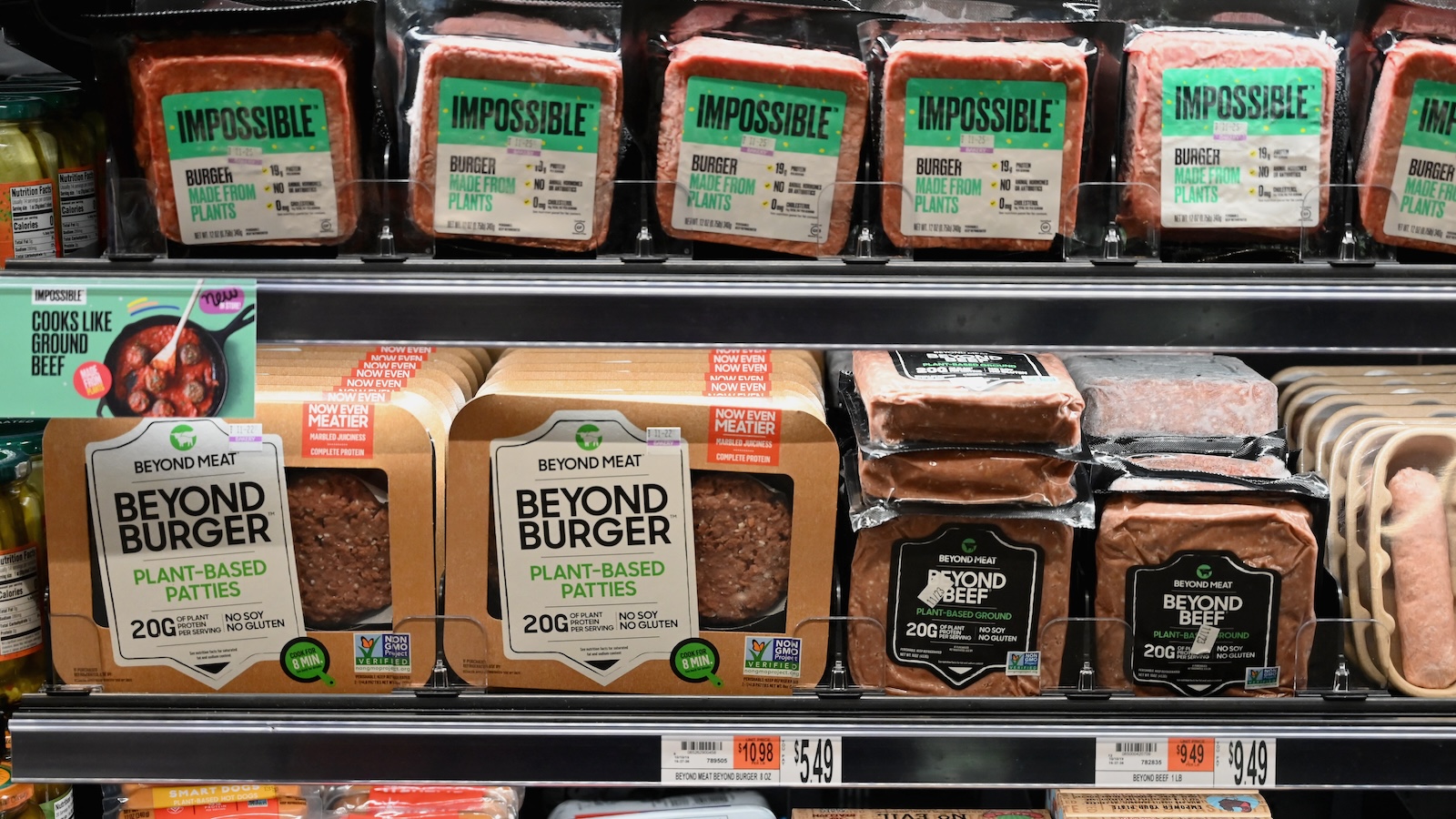Just a few years ago, the alternative protein industry promised to revolutionize the way people eat burgers: They would still sizzle and bleed, they’d taste great, but they wouldn’t actually contain any meat. Today it seems that, if that revolution is still coming, its arrival has been more than a little delayed. Sales of plant-based meat and seafood have fallen over the last two years, and a recent bevy of headlines suggest that this latest wave of imitation meat was just that: a passing fad.
A new report suggests that if the alt protein industry has any hope of scaling, it will take robust funding from a number of different sources — including, crucially, the public sector. The report compares plant-based meat imitations to electric vehicles, a powerful climate solution that has benefited from government support, such as direct purchase subsidies.
But like the EV industry before it, alternative meat has a culture war problem to sort out before it can grow — with or without government investment.
Despite some obvious differences, there’s a major parallel between electric cars and alternative meat: They’re designed to be a one-to-one replacement for their predecessors. Buying an electric vehicle “doesn’t require consumers to make extensive behavioral changes” like forgoing a car completely, said Emma Ignaszewski, one of the authors of the report. Similarly, consumers can simply choose to buy burgers that aren’t made from animal protein rather than burgers that are. “You can enjoy your burger, but it can be produced with far lower greenhouse gas emissions than conventional meat is,” said Ignaszewski, who is a senior associate director at the Good Food Institute, or GFI, a think tank that promotes alternative proteins.
Research has shown that animal agriculture is responsible for 11 to 20 percent of greenhouse gas emissions. The development of plant-based foods — meat substitutes that don’t contain meat — could help reduce these emissions and lead to less deforestation and land degradation. One study found that a vegan diet produced about 75 percent less planet-warming gas emissions than meat-rich diets.
Ignaszweski acknowledges that the comparison of alt meats to EVs has its limitations. “The average American buys a car once every eight years,” she said, while “purchasers of meat buy 60 packages at the grocery store every year. Over the course of a decade, that’s one decision point versus 600.”
But the broader point of the report, which was published by GFI, the Boston Consulting Group, and Synthesis Capital, a venture capital fund that invests in new food technologies, is that meatless meats could take off in the same way EVs have if more public dollars were invested in the industry. (The report touches on plant-based meat and seafood, as well as cultivated or “lab-grown” meats, which are produced directly from animal cells, and fermented foods, which utilize microbes to produce proteins, fats, and nutrients.)

In 2022, the alternative protein industry received $635 million in government support globally. The Environmental Working Group, or EWG, found last year that, since 2001, the U.S. Department of Agriculture has only put $124 million towards subsidizing alt proteins. By comparison, the USDA gave at least $59 billion in various subsidies to livestock operators from 1995 to 2023.
More public investment in plant-based meat would not only help drive research and development of new technologies and help scale manufacturing, according to GFI, it would also be a signal to private capital markets that the alternative protein space is worth taking seriously.
“If the U.S. is serious about technical solutions to address climate change, the food system is a really important piece of that puzzle,” said Ignaszweski.
Other experts agree, with caveats. David Zilberman, a longtime professor at the Agricultural and Resource Economics Department at UC Berkeley, believes it’s “a little bit exaggerated” to compare meatless meat to EVs. He cites, for example, the employment opportunities created by EV manufacturing as one of the reasons that the two industries are different. But he agrees the sector sorely needs more support. He described alternative proteins as having “huge importance, especially in terms of food security, but most importantly in terms of climate change.” Greater investment would help drive the kind of innovation that would help alternative proteins reach taste parity with conventional meats. “In the long run, if you were able to develop things that taste better, consumers would like it,” said Zilberman.
Still, for the U.S. to back alternative proteins in the same way it has helped to spur the adoption of EVs would require a political sea change. Fears of climate policies eliminating meat from the American diet loom large over the conservative movement. A 2023 study found that Republicans said they were less likely to vote for a hypothetical candidate who said, “It’s time for us to work together as a nation to reduce our reliance on meat and dairy and focus on solutions like plant-based foods and artificial meats instead.” In 2018, Senator Ted Cruz memorably warned that, “If Texas elects a Democrat, they’re going to ban barbecue across the state of Texas.” He later explained it was a joke, but the message was instantly clear: Climate action means sacrificing precious ways of life, especially for men who view eating meat as a tenet of masculinity. This fear has resulted in a backlash against alternative proteins: In May, Florida and Alabama banned the manufacture and sale of lab-grown meat.
Crafting an effective narrative to counter entrenched beliefs about meat versus plant-based foods will be key to the industry’s success, said Samantha Derrick, the founder of Plant Futures, an interdisciplinary program at UC Berkeley that aims to train students for careers in alternative proteins. “I think, as well organized as Big Ag is, even though they have a lot of money and resources, there’s a lot of potential on the alt protein side,” said Derrick. And she believes that the generation of entrepreneurs entering the workforce now can help develop a new, more compelling narrative.
“Ultimately at the end of the day, the information, the data, the research, the climate argument, it’s all on our side,” said Derrick. “And that’s one thing that Big Ag does not have that we have.”



